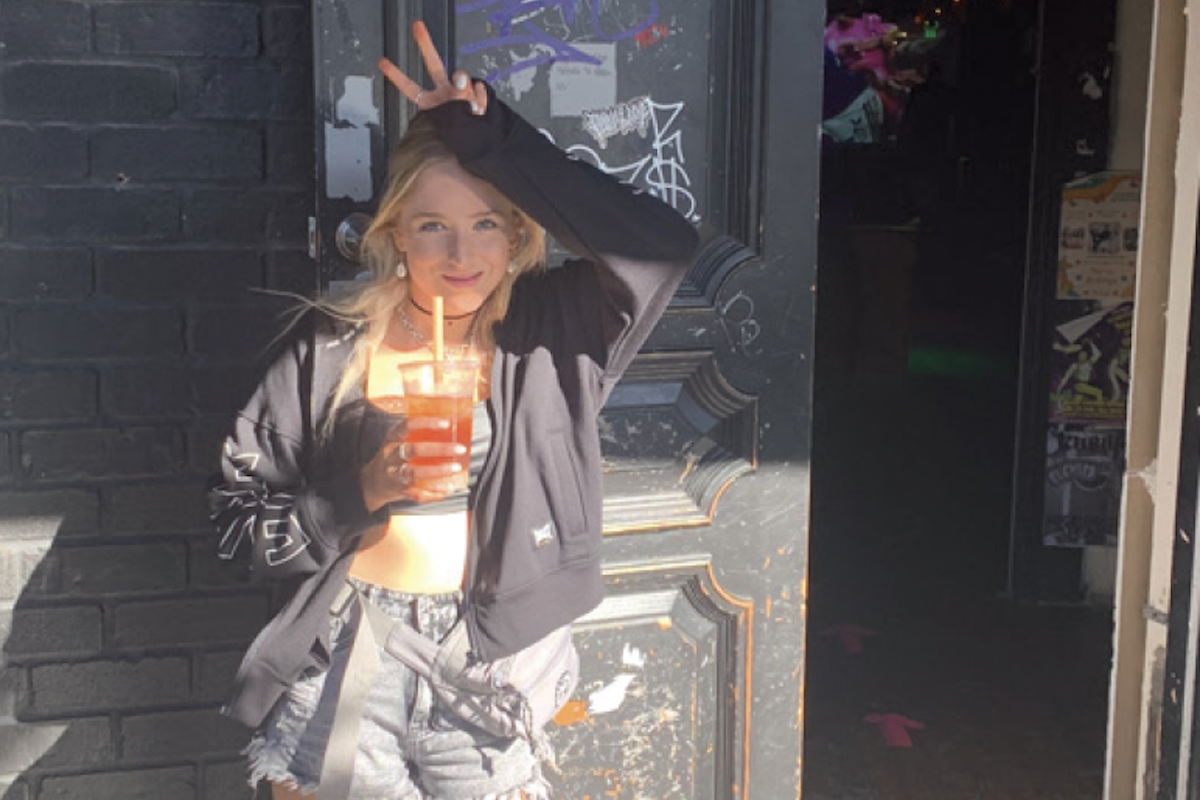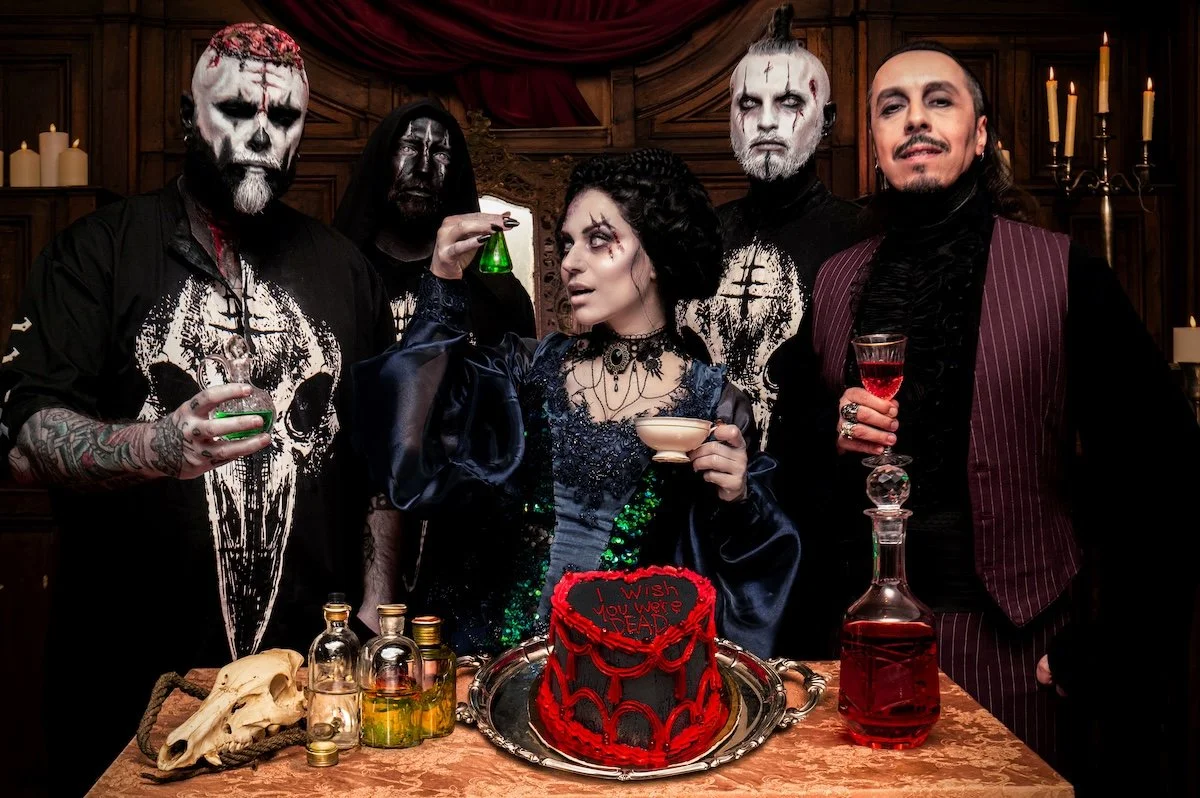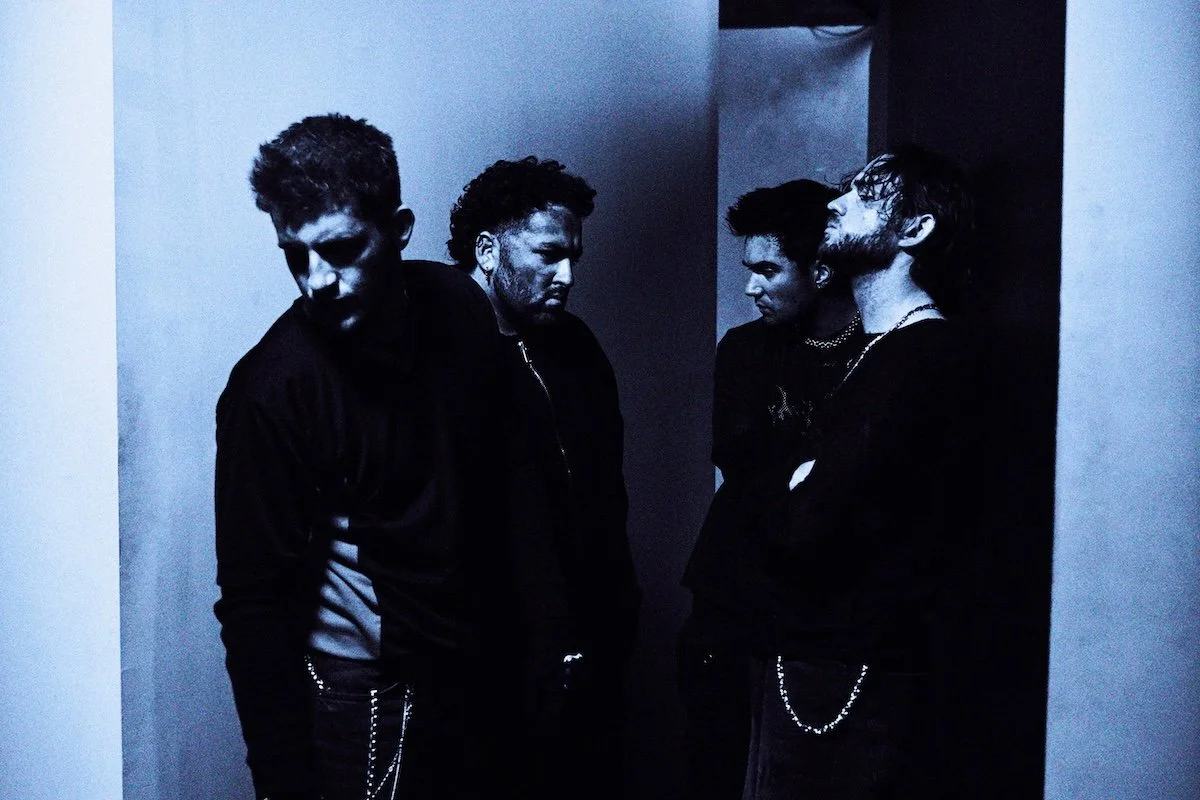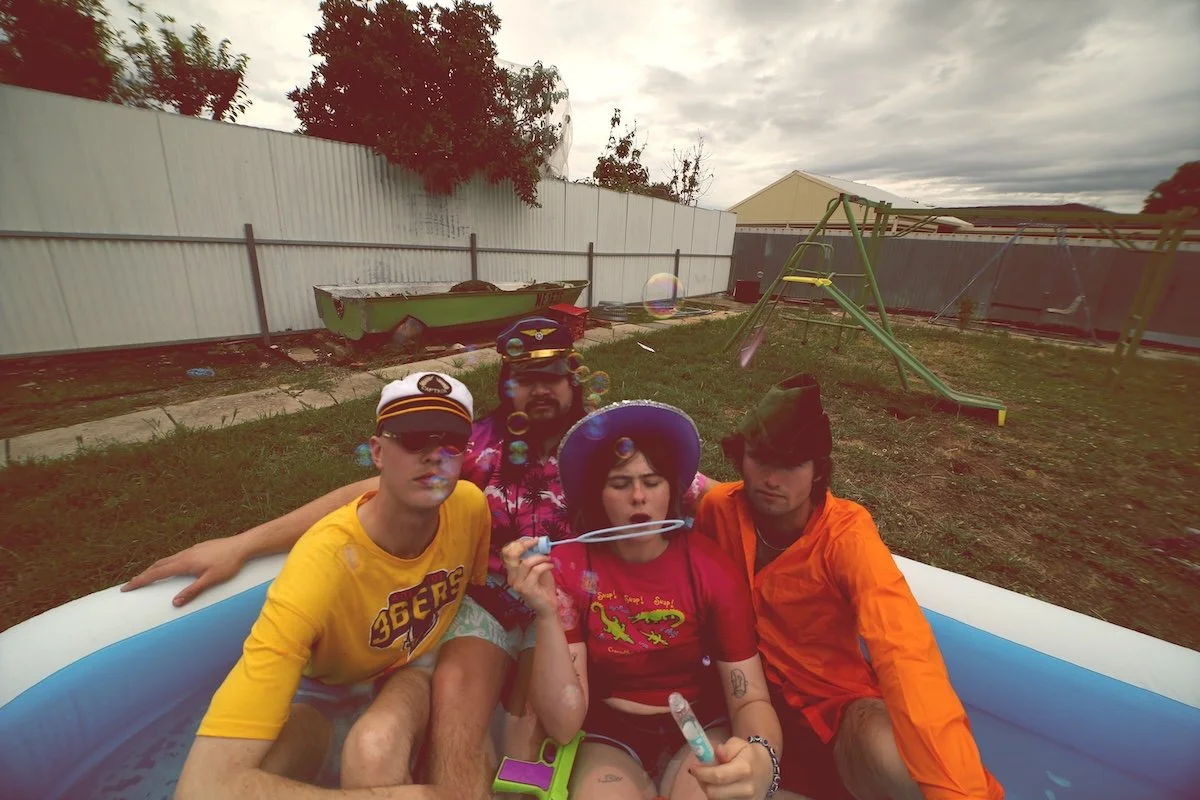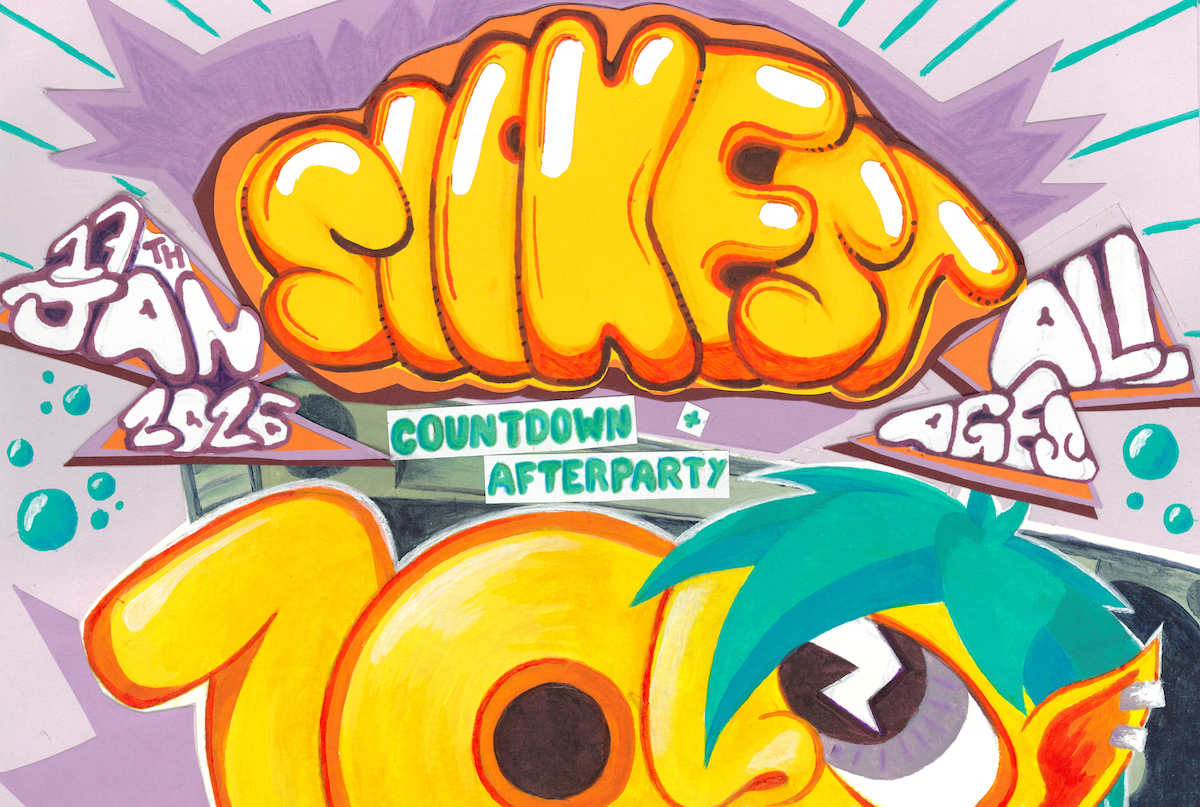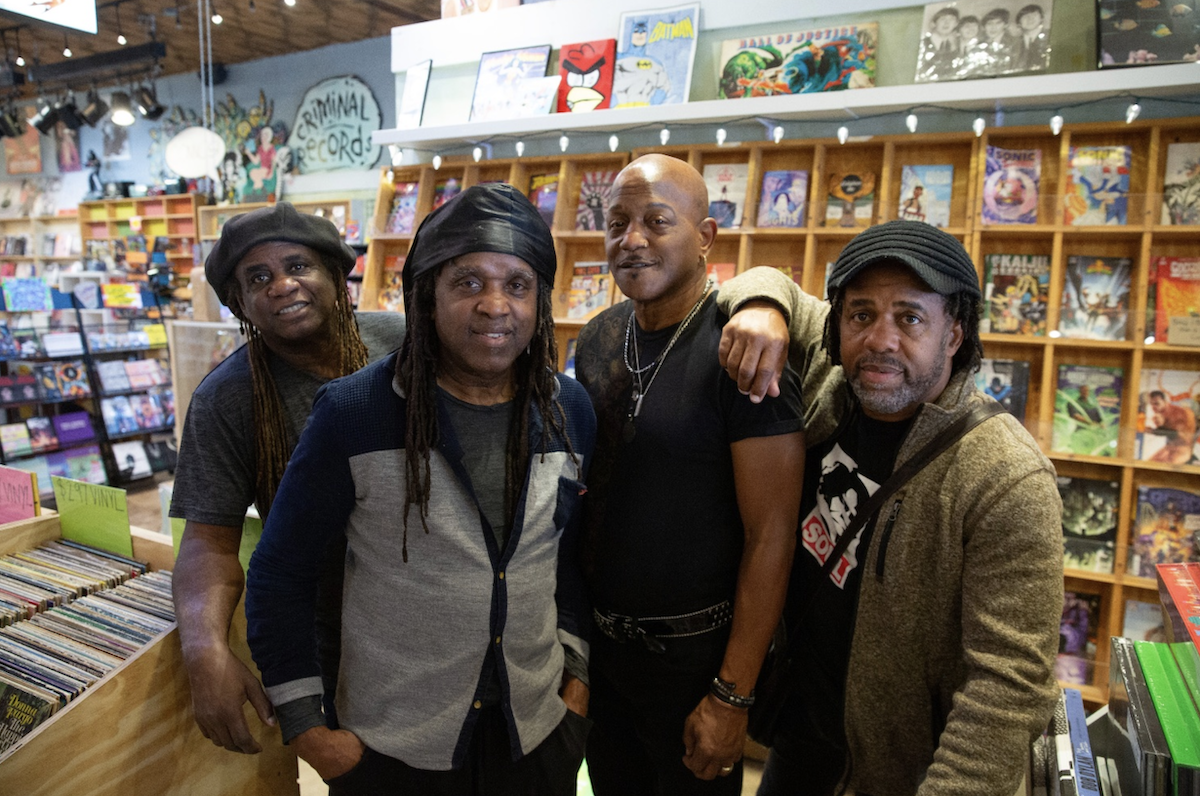Dem Mob Makes Their Mark
Ahead of their WOMADelaide gig, Dem Mob chats to The Note about rapping in Pitjantjatjara, making an impact with their music and inspiring the next generation.

Image via @DEMMOBadl (Facebook)
Music has always been a vehicle for change. From Youth Yindi’s ‘Treaty’ to A.B Original and Dan Sultan’s ‘January 26’, lyrics have called out oppression, marginalisation and racism against First Nations people.
Dem Mob, a young rap group from the APY Lands, are following in the footsteps of Indigenous artists using music to deliver powerful messages. Fronted by Elisha Umuhuri (22) and Jontae Lawrie (20), the group has been marking their mark in the music industry since bursting onto the scene in 2020. In three short years, they’ve been nominated for three SA Music Awards, opened for artists like Electric Fields and have rapped at events like Treaty. Now, they’re performing a major set at this year’s WOMADelaide.
The Note is chatting with Elisha ahead of WOMAD, a gig they’ve been preparing for since they started performing at the festival’s Northern Sound System (NSS) portable stage in 2020. He says landing a spot on the lineup still feels pretty surreal.
“It’s sick we get an hour to showcase who we are and what our music represents,” he says. “The last few years, we’ve been building ourselves, the group and our music. It’s led us to landing this set.” Elisha is from Indulkana, one of the tiny communities in the remote APY Lands in the north of the state. “The audience at WOMAD is more than our whole APY population – which is crazy!”
The NSS partnered with WOMAD to develop a training academy for emerging First Nations and multicultural artists. Dem Mob was part of the pioneer program alongside rising musicians like Marlon x Rulla and Elsy Wameyo.
“We want to use our set to show the struggles that Aboriginal people face, what we go through, what we’ve been through, and how it’s made us who we are,” Elisha says.
Sometimes during the performance it’s hard for the band not to be caught up in the gravity of what’s being said. He says performing ‘Still No Justice’ moves the group – particularly in the closing verse when they chant the song’s title as a police siren wails in the background. Dem Mob sang it live at the 2022 SA Music Awards and asked the audience to raise their fist in a sign of solidarity with the track’s message.
“That [last] part always hits us because that song started from a small idea, and it’s so powerful. When it educates people and changes [them] for the better, it’s really emotional.”
Dem Mob were also the first rappers to perform and record in Pitjantjatjara, mixing the Indigenous language in verses about resilience in their break-out track, ‘Kalala Kutjupa’.
“Anybody can relate to our songs – not just our people. That’s the beauty of being able to rap bilingually. [It] gets our message to a broader audience. Music is a powerful weapon.”
Elisha says their new single, released on March 11, will be the best example of how Dem Mob’s wordplay works when matching and mixing Pitjantjatjara and English. “It’s getting easier. And the easier it gets, the more fun it is. Now it’s like, oh no, we have too many good ideas!” he laughs.
In turn, Dem Mob’s music, lyricism and attitude have meant Elisha and Jontae have become leaders to younger people in their community. Before moving to Adelaide earlier this year, the duo and friend/group member Matt Gully ran a bilingual rap pedagogy program for people living in the APY Lands.
“We had professors come and analyse how the program would improve engagement, attendance, our language, well-being and mental health. That’s our future pathway – not just doing music with DemMob, but being in schools, delivering our program engaging students.
“Our traditional music is the last link we have to our culture. It’s the only thing that hasn’t been taken away from us. As long as we have those songlines and Dreamtime stories with the next generation, our culture will still be strong.”
General Admission Entertainment’s Event & Artist Manager and Venue Booker, Hannah Louise, gives us the lowdown on her favourite songs, albums and music-related moments.
The Note spoke with Joyce Manor’s Barry Johnson (guitar/vocals), Chase Knobbe (guitar) and Matt Ebert (bass) about their new record, baking, The Bear, songwriting and so much more.
Ahead of the band’s upcoming Elements Tour, vocalist and multi-instrumentalist Jeff Martin spoke with The Note about the band’s longevity, performing with an orchestra and the enduring relationship with his bandmates.
Lacuna Coil’s Andrea Ferro discusses navigating new technological eras, their dream collaborations and why Lars Ulrich was right in his Napster battle.
Thornhill vocalist Jacob Charlton explains to The Note, a difficult decision put the band ‘under the knife’ of pressure in 2025, but thankfully, they ultimately grew from it.
Better Lovers, the hardcore punk supergroup formed from the ashes of the legendary Every Time I Die, make their Australian tour debut this January. The Note spoke with members Jordan Buckley and Will Putney to discuss new music, their chaotic live show and what 2026 holds for them.
SA’s fav grunge-rock four-piece is on the move. Headlining OC Sound Fest and gearing up to drop their sophomore EP The Dogs Are Barking, we chewed the fat with Georgie and Ben.
When Bryget Chrisfield Zooms one third of Viagra Boys ahead of their upcoming Australian tour, they are in Stockholm: bassist Henrik “Benke” Höckert is at home, while saxophonist Oskar Carls is in Shrimp Enterprises, the band’s studio.
Currently preparing the release of their much-anticipated fourth studio album, Saosin are touring Australia in April to celebrate the 20th anniversary of their debut. Guitarist Beau Burchell talks with The Note about the making of their new record, how their sound has evolved and his love for Parkway Drive.
Celebrating the 20th anniversary of their seminal third album, The Sun Never Sets, The Herd are taking the record on the road this year. Ahead of their performance at iconic Adelaide venue The Gov, The Herd’s Toe-Fu spoke with The Note about the making of the album, covering John Schumann’s ‘Only 19’ and the prospect of new music.
Having reformed in 2023 with Jakob Nowell, the son of original vocalist Bradley Nowell, Sublime have been touring the globe and are currently working on a new album. Ahead of their Australian visit, The Note spoke with Jakob about Sublime’s legacy, his father and the band’s upcoming tour down under.
Coming-of-age indie pop-rock, infused with a DIY punk ethos, is ixaras’ brand to a T. Following the release of her gripping sophomore EP What Is And What Isn’t, the 18-year-old Brisbane-based artist talks growing up, indie labels and Adelaide’s buzzing youth music scene.
SA’s own homegrown version of triple j’s ‘Hottest 100’ takes over the airwaves and Adelaide Unibar on January 17. Here, we chat to Ripley from the Sounds Sick crew for the rundown.
Aussie music champion Keli Holiday digs deep about crafting connection, ahead of his upcoming album Capital Fiction and biggest headline Australian tour to date.
In the lead-up to Caltowie Chilled Out ‘n’ Fired Up Music Festival 2026, founder Ben Van Boekel talks to us about Caltowie’s origins, raising awareness of men’s mental health struggles and his enthusiasm for live music.
James Reyne has been there, seen it and got the t-shirt. Ahead of his national tour next year, the famed singer-songwriter spoke with The Note about his disdain for reality singing competitions, his love for Australian Crawl songs and why emerging musicians should move overseas.
American bassist, songwriter and record producer Victor Wooten and his brother Roy chat with The Note about their musical history, Victor’s rare neurological condition and the impact of AI on modern music.
Winners of the acclaimed Festival de Ovejas, Bogotá trio La Perla merge traditional Colombian Caribbean rhythms with innovative contemporary sounds. Ahead of their first appearance in Australia as part of WOMADelaide 2026, the band discuss why they believe their music resonates with audiences across the globe, how their collaborative album with Pulcinella came about and what a La Perla live show encompasses.
Powerhouse vocalists Sarah McLeod and Dallas Frasca have locked in 15 dates across February and March 2026. Ahead of their tour, the two spoke with The Note about touring sustainability and raising funds for the charity organisation Seed Mob.
South Aussie music content creator and champion of the local scene Dakota Griffiths, aka Band Banta, fills us in on her top five songs, favourite album and most memorable music moment.
Aussie punk icons are back with new thrilling new album, GODSPEED. Vocalist Jamie Timony and guitarist Todd Andrews got on Zoom and spoke with The Note about their artistic process, their relationship with GODSPEED and mixing politics with music.
Equal parts grit, rock and heart, Looch are proof that mates make the best bands. With new single ‘SHOO’ on the horizon, guitarist Matty Ranger opens up about growth, gratitude, and the beautiful chaos of community.
Armed with one of the strongest heavy releases of 2025, the frontman of the Californian group takes us through Creature In The Black Night.
Packed with an Australiana grunge rock punch, Kurralta Park’s debut album Powell Place seeps authenticity. Here, frontman Bindi McCallum talks tequila-fuelled recording sessions, Daybed Records’ Live in Lincoln Festival, and the village it takes to make it all happen.
Adelaide singer-songwriter Trent Worley is gearing up for the release of his latest album, Now, When?. Ahead of the record dropping and Worley’s album launch show at The Austral next week, the local lad opened up about the challenges he’s faced as an indie artist, what his new release is all about and the importance of physical media.
Divebar Youth, one of South Australia’s most exciting emerging alternative indie acts stops by, ahead of the release of his sophomore EP Modern Expectations to chat breaking the mold, European escapades and his upcoming EP tour.
BOUSTA has made his mark, dropping deadly records and turning heads all across Adelaide. This year, the Arrernte rapper has turned momentum into meaning, fusing language, truth and culture to create something that lasts.
From Cranker beginnings to AC/DC support slots, Oscar the Wild are turning up the heat this November. Here, the trio chat sharing stages with idols, their latest EP Blue, and building spaces where everyone belongs.
Craving nothing more than connection, Ella Ion has spent 2025 throwing stones of vulnerability, sending ripples of bare-all honesty across the globe. Here, the singer-songwriter reflects on touring, truth-telling, and celebrating SA’s music community with Hyde & Seek.
Parrot frontman Matt Young revealed all to The Note about the making of their new album, A Young Person's Guide to King Parrot, singing with Jason Momoa and the impact of new drummer Max Dangerfield.

